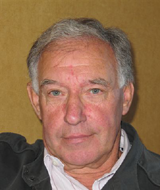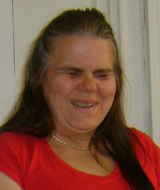
Please select country
National Page of France
National representatives

Name: Mr. Francis Boe
E-mail:

Name: Mrs. Marie Renée Hector
Position: President of the GIAA
Organization: Groupement des Intellectuels aveugles ou amblyopes
Address: 5, avenue Daniel Lesueur, 75007 Paris
E-mail:
Personnal e-mail:
Phone: +33 1 47 34 95 42
Personnal mobile nr.: +33 6 87 31 97 76
Website: GIAA website
Name: Mrs. Michelle Collat (French speaking)
E-mail:
Organisation of schooling, education and rehabilitation for visually impaired children in France
The organisation of support for visually impaired children in France has been undertaken for a long time by specialised institutions which accommodated the children, often in boarding schools which took care of their schooling, education and rehabilitation. In the last few decades, this situation has changed and there has been a move towards the opening up of these establishments to the ordinary system of schooling and the creation of services which support children in mainstream schools.
The law of February 11, 2005, "for equal rights and opportunities, for the participation and the citizenship of people with disabilities" accentuated this movement by giving responsibility for the schooling of all disabled children to the services of the Ministry of National Education.
The law works on the principle that any child or adolescent affected by a disability must be able to be provided with schooling in the school nearest to his/her place of residence. If a specialist organisation is needed, which does not exist in the local school, the pupil can be registered in another school, in the ordinary or special sector. The institutions and services of the Ministry of Health and Solidarity supplement the ordinary school system, when this system cannot meet the specific needs of the child or teenager.
General organisation of support for disabled people
The law of February 11, 2005 creates a single centre intended to make the steps easier for disabled people: the departmental house for disabled people (in French: MDPH, Maison Départementale des Personnes Handicapées). This offers, in each department, centralised access to the rights and services planned for disabled people. The MDPH "fulfils a mission of reception and information, gives support and advice to disabled people and their family, and makes all citizens aware of disability". Its missions are as follows:
- Information on various aids
- Reception and listening
- Assistance in planning for the future
- Assessment of needs for compensation
- Development of a plan for compensation which matches the needs of the person
- The attribution of the services of compensation by a commission, the Commission for the Rights and the Autonomy of Disabled People (in French, CDA, commission des Droits et de l’Autonomie des Personnes Handicapées)
- Follow-up of the compensation
- Support and mediation, in particular at the time of onset and development of the disability.
For visually impaired children
Within the general framework defined above, the law works on the principle of a personal plan of compensation which provides different aids to the person to live in the ordinary and the adapted system. For visually impaired children, the plan of compensation is discussed within the MDPH, with the family of the child, who contribute to the assessment of needs for their child. From this appreciation of the specific needs, the CDA must propose to the child, to his parents or to his legal representative a choice between several adapted solutions. The parents play an important part in the development of the personal plan of compensation, in the choice of the institution or service which will help them. The admission to an institution or a service constitutes a measure of compensation, registered in the personal plan of compensation.
The schooling of visually impaired children
When children are 3 years old, if their family request it, they can go to the nursery school. Each school has to accommodate the children in its sector of recruitment. To meet the particular needs of disabled pupils, a personal project of schooling organizes the schooling of the pupil, with measures of support decided by the Commission for Rights and Autonomy (C.D.A.), such as, for example, support from a specialist service, assistance from a school auxiliary...
From the elementary school (at 6 years of age), school integration can be individual or collective:
- Individual schooling: consists of providing education for disabled pupils in an ordinary class. At all levels of teaching, individual schooling is the first requirement. Whether the child is in school full or part-time, adaptation of the conditions of reception will be required within the framework of the personal project of schooling (integral part of the personal plan of compensation) to take into account the particular educational needs for each disabled pupil. As part of the complement of the schooling, on the decision of the Commission for rights and autonomy (C.D.A.), the specialist team of a service can intervene. When it’s necessary, the pupils can also be supported by an auxiliary.
- Collective schooling: consists of including in an ordinary school a special class with a limited number (in general 10 to 12) of visually impaired pupils. In the elementary schools, these classes, named CLIS (CLasses d' Intégration Scolaire), accomodate children with a visual impairment. The pupils receive adapted teaching within the CLIS, and share some activities with the other pupils. At the secondary level, when the requirements of an individual schooling are too large, pupils with a disability can be provided with schooling in an UPI (Unité Pédagogique d’Intégration). This system is provided for children from 12 to 16 years who are not able to profit from ordinary teaching in college. Taught by a specialist teacher, they can receive adapted teaching which implements the objectives of the personal project of schooling, including as much as it is possible, participation in the activities of the class to which the child would have belonged.
- pedagogical aid in the school, teaching support
- vocational training
- psychomotricity, early education,
- low vision rehabilitation
- family support, psychological support
- rehabilitation in ADL (in French, AVJ, Autonomie dans la Vie Journalière), O&M (in French : locomotion)
- data processing, training for using adapted materials
- ergonomics of the work station
- adaptation and transcription of pedagogical documents and all documents
- .........
- Specialist teachers working for the Ministry of National Education have a certificate of professional competency for specialist support, adapted teaching and the schooling of the pupils with disabilities (CAPA-SH), undertaken with the INSHEA (Institut National Supérieur de formation et de recherche pour l'éducation des jeunes Handicapés et les Enseignements Adaptés)
- Specialist teachers working for the Ministry of Health and Solidarity prepare the CAEGADV with the CNFEDS in the Université Savoie Mont Blanc
- Rehabilitation workers in ADL (in French, AVJ : Autonomie de la Vie Journalière) have a diploma delivered by the Université Paris 13 and the FISAF
- Specialists in orientation and mobility (in French: locomotion have a diploma delivered by the APAM (Association pour les Personnes Aveugles ou Malvoyantes)
- the transcriber-adapters are formed at the FISAF
- ANPEA (Association Nationale de Parents d’Enfants Aveugles ou gravement déficients visuels avec ou sans handicap associés): national association of parents of the blind or seriously visually impaired children with or without associated disabilities
- APEDV (Association de Parents d’Enfants Déficients Visuels): association of parents of visually impaired children
- GPEAA (Groupements de Professeurs et Educateurs d’Aveugles et d’Amblyopes): association of teachers and educators of visually impaired children
- ALFPHV (Association de Langue Française de Psychologues Spécialisés pour Handicapés de la Vue): association of psychologists working in the field of visual impairment
- FISAF (Fédération pour l’Insertion des personnes Sourdes et des personnes Aveugles en France): federation for inclusion of deaf people and blind people in France)
- official ministerial site
- a website full of information about visual impairment and contacts, created by Pierre GRIFFON, psychologist
- the site of Droit au Savoir, a national group of associations for access to higher studies and vocational training for young disabled people.
However, these collective classes do not exist in all the départements. It is then more often the individual school integration that is the choice. When this can’t continue or is not adapted any more to the needs of the child or the teenager, the orientation towards a specialist institution can be proposed or required by the child and his family.
Thus, the specialist institutions propose adapted schooling for the particular difficulties encountered by some children or teenagers who cannot continue their schooling in the ordinary system. Specialised vocational trainings are also proposed by some establishments.
Concerning higher education, the support is ensured on the one hand by the Missions Handicap of the Universities and on the other hand by services and associations specialised in the assistance of disabled students. Special funds of the CNSA (Caisse Nationale de Solidarité pour l’Autonomie) were assigned to this mission. The needs assessment for the person is carried out by the MDPH. The association Droit au Savoir is a national group of associations for access to higher studies and vocational training of young disabled people. It has on its site www.droitausavoir.asso.fr much information about these organizations.
More information about schooling of visually impaired children.
Institutions and services
In France, many institutions are spread out over the whole of the territory. Depending on their agreement and their project, they accomodate children or teenagers, providing school or not, in boarding school or semi-boarding school, with initial or vocational training, for children with multiple disabilities.
In the majority of the départements, local services were created to support the children and their families in their schooling and their everyday life. These services have variable denominations, generally SAFEP (Service d’Accompagnement Familial et d’Education Précoce) for children from 0 to 3 years old and SAAAIS (Service d’Aide à l’Acquisition de l’Autonomie et à l’Integration Scolaire) from 6 to 20.
There is not, to our knowledge, an exhaustive official list of the institutions and services in the French territory. The ONISEP publishes a guide to the establishments, services and school establishments for visually impaired young people. Many other sites (such as those listed below) however count a large number of structures. The MDPH of the départements are able also to provide information concerning their département.
Types of support provided by institutions and services
Each institution or service defines its own means of action depending on the population it serves, its age, its needs and the regional resources. The types of support implemented are:
The specialised institutions and services are organized gradually to become Resource Centres for all questions relating to visual impairment. They have to answer the requests of all their partners concerning questions of information, sensitisation, accessibility.... and to put the competences acquired for visual impairment at the disposal of anybody, with the aim of supporting the inclusion of all visually impaired people in the community.
Training for specialised staff
Training for people who work with visually impaired children is ensured by different organizations:
The FISAF is an organisation for continuous training which proposes formations and training courses with the institutions and services. Various organizations also propose meetings and annual congresses where professionals can exchange ideas and continue their training. This is the case in particular for GPEAA, ALFPHV, ANPEA.....
Associations
National associations of parents, professionals, institutions, indexed below facilitate contacts and exchanges between the individuals who provide support for the visually impaired children and their families.
